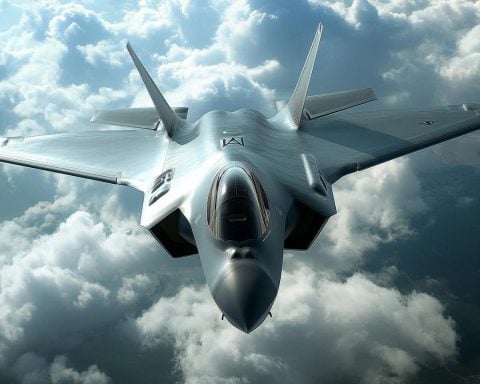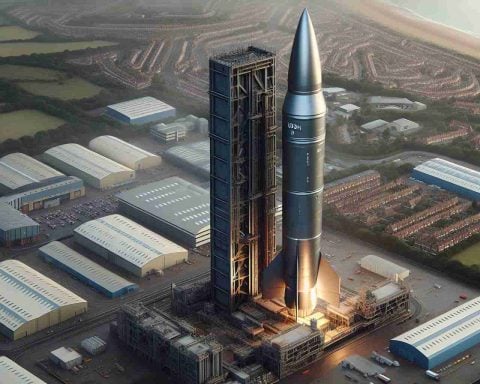Elon Musk, the CEO of Tesla and SpaceX, provoked a dramatic stir over the weekend with his pointed critique of Lockheed Martin’s F-35 fighter jet program via X, previously known as Twitter. His commentary coincided with a 3.8% drop in Lockheed’s stock on Monday, erasing around $5 billion in market capitalization and closing at $521.89.
Musk shared a video featuring drones flying in synchronized patterns, underscoring his belief that investing in manned fighter jets like the F-35 was misguided. His influence, stemming from his leadership in the tech sector and advisory position with U.S. President-elect Donald Trump, amplified the impact of his words.
The F-35 program, accounting for approximately $1.8 trillion in development costs, has encountered significant issues with its stealth capabilities, maintenance, and overall operational effectiveness. Technical challenges, including a glitching prognostic health management system and gun system flaws, have raised concerns about its future applicability.
Lockheed Martin has faced cybersecurity threats and has been urged to bolster its defenses. Despite Musk’s harsh criticism, Lockheed maintains that the F-35 meets over 90% of the requirements, attributing many problems to logistical rather than design issues. Analysts argue that, while drones have a pivotal role, manned fighter jets like the F-35 perform essential tasks beyond drones’ capabilities.
Musk’s critique comes at a time when the U.S. Defense Department is deploying autonomous systems through initiatives like the “Replicator Initiative.” However, defense leaders emphasize the indispensable roles both manned and unmanned systems play within the modern military framework, particularly as potential conflict scenarios evolve globally.
The Rise of Autonomous Warfare: How Elon Musk’s Critique Challenges Traditional Military Paradigms
In a rapidly evolving technological landscape, the discussion over manned versus unmanned military systems takes center stage, sparked by Elon Musk’s recent critique of Lockheed Martin’s F-35 fighter jet program. Musk’s commentary, favoring autonomous drones over traditional fighter jets, ignites debate on the future of military technology and its broader implications for humanity.
Autonomous Warfare: A New Frontier
The evolution from traditional manned fighter jets to autonomous drones marks a significant shift in military strategy and technology. Drones offer flexibility, reduced risk to human pilots, and lower operational costs. Additionally, the incorporation of artificial intelligence in drones allows for real-time decision-making and coordination, as seen in advanced synchronized drone formations.
Impact on Global Military Strategies
Musk’s critique arrives amid heightened global tensions, prompting nations to reassess their military frameworks. The shift towards drones could democratize military capabilities, allowing smaller countries to field formidable forces without significant investments in traditional military hardware. Autonomous technologies could level the playing field and alter power dynamics globally.
Advantages and Challenges
The deployment of drones brings undeniable advantages: reduced casualties, enhanced monitoring, and increased operational efficiency. However, their integration poses ethical questions about autonomy in lethal operations and accountability in warfare. Autonomous drones also present potential cybersecurity vulnerabilities, requiring robust defenses against hacking and unauthorized use.
Is Technology Moving Too Fast?
A critical question arising from Musk’s comments is whether military technology is advancing faster than ethical and policy frameworks can manage. The potential for autonomous systems to make life-or-death decisions raises concerns about oversight and the sanctity of human judgment in warfare.
The Future of Manned Systems
Despite the advantages of drones, analysts argue for the continued relevance of manned aircraft. Human pilots provide intuition and adaptability that current AI cannot replicate. Manned systems remain crucial in scenarios requiring nuanced decision-making and engagements where human presence is imperative.
Balancing Innovation with Tradition
As the defense community navigates these innovations, a balanced approach integrating both manned and unmanned systems might be the most viable path forward. This blend allows for leveraging cutting-edge technology while maintaining the human elements essential for strategic military operations.
Conclusion
Elon Musk’s critique challenges traditional military paradigms and emphasizes the need to reevaluate the balance between manned and autonomous technologies. As humanity stands on the brink of a new era in military advancements, the decisions made today will shape the landscape of global defense strategies and humanitarian considerations for decades to come.
Related Links:
– Elon Musk’s Tesla
– SpaceX
– Lockheed Martin


















